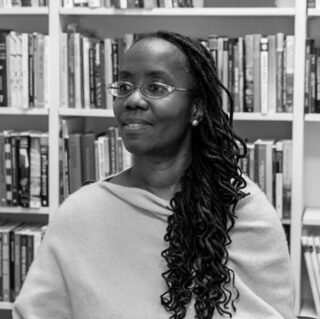3 days / 70+ speakers
80+ lectures, seminars, and workshops
National Symposium for Classical Education
February 22-24, 2023

Angel Parham
Her area is historical sociology, where she engages in research and writing that examine the past in order to better understand how to live well in the present and envision wisely for the future. Her research and teaching are inspired by classical philosophies of living and learning that emphasize the pursuit of truth, goodness, and beauty. She is the co-founder and executive director of Nyansa Classical Community , an educational non-profit focused on K-12 students which provides lower and upper school curricula in the humanities to schools and homeschools. Nyansa curricula and programs are designed to connect with students from diverse backgrounds, inviting them to take part in the Great Conversation, cultivate the moral imagination, and pursue truth, goodness, and beauty. Parham is the co-author (with Anika Prather) of The Black Intellectual Tradition: Reading Freedom in Classical Literature, published with Classical Academic Press (2022). She is also the President of the Board of Academic Advisors for the Classic Learning Test (CLT) which takes an approach to academic testing that seeks to reconnect knowledge and virtue. Parham completed her B.A. in sociology at Yale University and her M.S. and Ph.D. from the University of Wisconsin-Madison.
SESSIONS:
On Freedom and Imagination in Classical Education
At the heart of the liberal arts education, we offer at classical schools is the idea of freedom—indeed “freedom” is the meaning of the “liberal” in liberal arts education. But what does it mean to be truly “free”? Do we have control over our lives, or are we inescapably shaped by social and economic forces external to ourselves? These are questions pondered by many social theorists who seek to understand the interplay of social structure and individual agency. At classical schools we also care greatly about our students’ imagination. Here we do not mean that which is fictionalized or made up, but rather, our students’ capacity to glean from their education a vision of the good that is possible in themselves and in the world. Our imagination can, however, be limited or truncated by our underlying ideas about individual freedom. In his Narrative, for instance, Frederick Douglass experiences an epiphany when he learns to read which opens up his soul and expands his conception of what is possible. At that point, he becomes mentally free in a way that is crucial for eventually securing his physical freedom. In this talk we consider the nature of freedom, the promise of the imagination, and how the two are related to each other. We do this by examining both theoretical and practical texts that help us to work through these ideas as they apply in our everyday lives.
